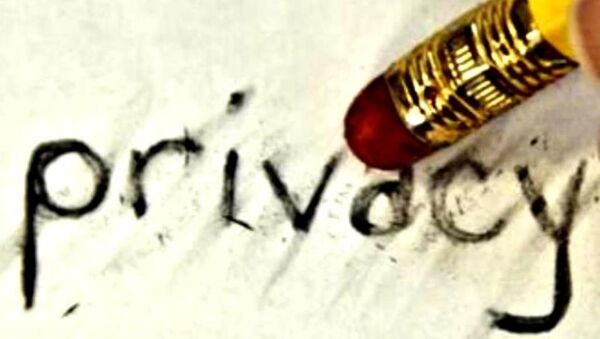In the wake of the Charlie Hebdo killings, British Prime Minister David Cameron pledged to stand up for freedom of speech, but then immediately stepped up the clampdown on another essential freedom — the right to privacy.
The shootings at the offices of the French satirical magazine Charlie Hebdo on January 7, followed by the killing of a police officer at Montrouge and four hostages at Porte de Vincennes, killing 17 plus the three gunmen, brought global condemnation.
Many felt it was an attack on the basic principle in a democracy: freedom of speech. The magazine had — over a long period of time — poked fun at the Prophet Mohammad, using images — a contentious issue for many Muslims. But many upheld its right to satirise. A right to freedom of speech.
Within hours, world leaders — including Cameron — denounced the attacks and upheld the principle of the freedom of speech. But all too quickly, Cameron then went on to argue that the attacks also justified further powers being given to the intelligence services and the police to have access to communications data.
Cameron's Swift U-turn on Freedoms
"We stand absolutely united with the French people against terrorism and against this threat to our values — free speech, the rule of law, democracy. It's absolutely essential we defend those values today and every day," he said in the aftermath.
But, days later, he said the Hebdo attacks showed that the intelligence service needed more powers to access communications data in their battle against terrorists. He said he would enact legislation to that effect in the net parliament, if he wins the 2015 general election. "If I'm Prime Minister I will make sure it is a comprehensive piece of legislation that makes sure we do not allow terrorists safe space to communicate with each other," he said.
France & Spain already have ID cards & snoopers charter Its worked protecting them from terrorist acts Oh, no, it hasn't #marr #marrshow
— Bobby Oven (@BobbyOven) January 18, 2015
Civil liberties groups in Britain say this is one step towards reviving the stalled Data Communications Bill - known as the 'Snoopers' Charter' — to force phone companies to maintain records (but not the content) of people's internet browsing activity (including social media), email correspondence, voice calls, internet gaming, and mobile phone messaging services and store the records for 12 months.
The bill was killed off when Deputy Prime Minister Nick Clegg withdrew his support, yet it still remains on Cameron's agenda for the next parliament.
Nick Clegg just said he doesn't like the snoopers' charter because monitoring Mrs Miggins' visits to the supermarket is unnecessary
— Nathan Briant (@nathanbriant) January 18, 2015
"Knee Jerk Reaction"
Emma Carr, director of Big Brother Watch, told Sputnik UK:
"Any attack or news story regarding terrorism will inevitably bring back the debate on privacy versus security and whether there are additional powers that are required. That is why it is integral that the debate is sensible and measured, not lurching towards knee jerk reactions."
However, she said that — by giving more powers of mass surveillance to the authorities — the freedoms people in a democracy enjoy will be curbed.
"Very few people would argue against the intelligence agencies and law enforcement having the powers to carry out targeted investigations and monitoring of suspected terrorists, but many would argue against the surveillance of an entire populations' communications.
"In the aftermath of the attacks in Paris, the Prime Minister took to Twitter to state that ‘We must never give up the values of free speech, the rule of law and democracy', surely nothing could be in starker contrast to that than treating everyone's communications as if they too are a suspect," she said.
#Snoopers_Charter is test of British People’s ability to walk blind into #Orwellian #Police #State. I want to stay PRIVATE! #MarrShow #Marr
— Je suis 'Trollie' (@TrollULike) January 18, 2015
Isabella Sankey, Director of Police at human rights group Liberty said: "The UK security services already have extensive powers: Since 2009 the Government has placed obligations on UK service providers to retain communications data — who we phone, text and email and much more — for 12 months through a blanket regime."
She said that former CIA contractor Edward Snowden — now in his second year of living in Moscow — had revealed mass surveillance already going on by both the US National Security Agency and Britain's spy agency GCHQ.
"@unanimousUK: Why we should oppose the snoopers charter — first gagging law! Then #drip! http://t.co/CkrpzOJENr pic.twitter.com/h4pm735X6f
— Are We All Asleep? (@demindblower) January 18, 2015
"Post-Snowden," she said, "the agencies continue to collect and intercept millions of emails, messages and web-chats entering and leaving the country every day. The Counter-Terrorism and Security Bill [currently going through the British Parliament] extends surveillance powers further, including a new power to intercept our post without warrant."
I dont get why we need a snoopers charter. What terrorist is going to use unencrypted email and open internet to communicate plans?
— Hapless dad says.. (@Cheeky_Blobfish) January 18, 2015
The Charlie Hebdo killers were both ‘on the radar' of the security services - as were the killers of British Army soldier Lee Rigby, murdered by two fanatics in 2013. No surveillance saved their lives. Human rights campaigners say any further intrusion — mass collection of all our communications data (email, Facebook, Twitter, browsers) — would be akin to handing over to the terrorist agenda. The world would live under Big Brother.
As Isabella Sankey says: "It would make us all less free, but no safer — not much of a trade-off."




